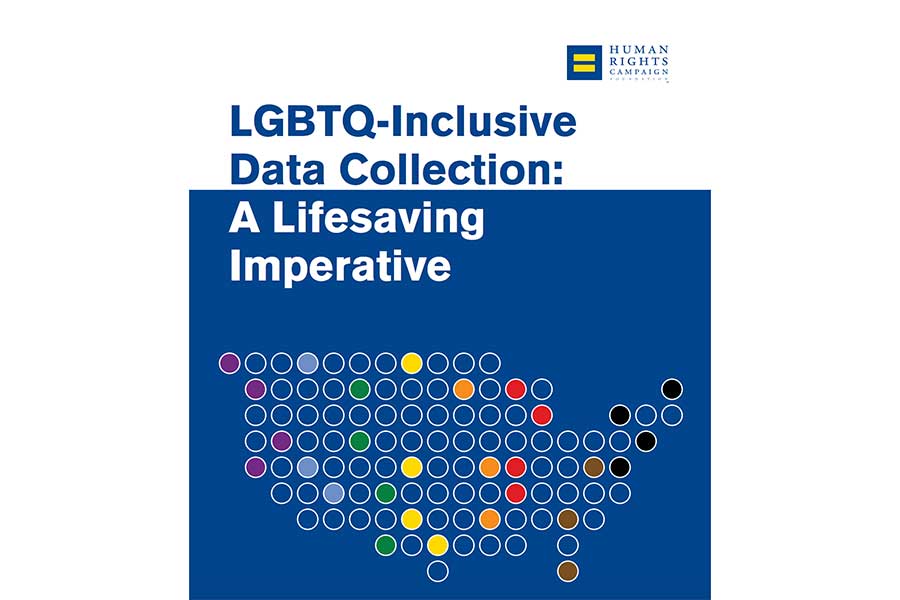The Human Rights Campaign released a report Tuesday concluding that LGBTQ Americans are “largely invisible” to public officials tasked with ensuring health, safety and wellbeing services due to local and national failure in collecting comprehensive data on sexual orientation and gender identity.
“LGBTQ-Inclusive Data Collection: A Lifesaving Imperative” states the queer community is typically left out of policy and funding decisions resulting from exclusionary data collection, which causes LGBTQ folks to miss out on funding that could provide crucial health and social services. The lack of queer-inclusive data fuels a harmful cycle that impairs the ability of advocacy groups to push for LGBTQ-oriented cashflow and legislation, the report reads.
“Failure to include sexual orientation and gender identity in demographic surveys brings about real and dire consequences for LGBTQ Americans. It is long past time that officials in every level of government include all marginalized communities, including LGBTQ Americans, in all relevant data collection efforts,” said Xavier Persad, senior legislative counsel at Human Rights Campaign, in a statement. “Countless sweeping legislative and regulatory proposals, as well as decisions directing hundreds of billions of dollars in public funding, are based on demographic data that exclude sexual orientation and gender identity. This means LGBTQ people are systematically left out of policy and funding decisions that carry life-saving potential.”
No state or federal laws exist that require government and government-funded data collection to include sexual orientation and gender identity data alongside research based on other demographics, like race, ethnicity and sex, according to the nearly 40-year-old LGBTQ civil rights organization. New York, California, Oregon, New Jersey and Washington, D.C. are the only U.S. municipalities boasting some degree of regulations requiring LGBTQ-inclusive data collection for areas outside of crime.
The Human Rights Campaign is calling on the federal Office of Management and Budget, which coordinates national statistical initiatives, to issue a directive mandating measures on sexual orientation and gender identity in all areas where data on sex is collected. The group is also pushing Congress to pass the LGBTQ Data Inclusion Act, which would require federal agencies to incorporate voluntary questions about sexual orientation and gender identity in all surveys and data collection methods that include demographic data.
“It is imperative that municipal and state governments close the gap on data collection across this country — and we are calling on them to pass legislation to ensure every single LGBTQ person is counted,” said JoDee Winterhof, Human Rights Campaign’s senior vice president of policy and political affairs. “We must also collect this data at the federal level. The Office of Management and Budget is failing LGBTQ people every day they do not act in collecting information on gender identity and sexual orientation.”
In Philadelphia, a subcommittee is making efforts to ensure accurate LGBTQ representation in the 2020 census. Organized by PHL Diversity at the Philadelphia Convention and Visitor’s Bureau, the group is one of 19 similar assemblies devoted to encouraging participation in the federal survey among different demographical subsets of Philadelphia’s population.
While the United States Census Bureau previously counted same-sex couples based on responses to sex and relationship questions, this year queer couples living together can choose two options to define their relationship: “same-sex husband/wife/spouse” and “same-sex unmarried partner.”
